- Home
- Bill James
Undercover Page 22
Undercover Read online
Page 22
‘The cancer!’ Hazel would say.
‘Yes, to do what at this Manor, Dad?’ Jill said. ‘You two going to be teachers there or students?’
‘To contribute to a course,’ Harpur replied.
‘Which course?’
‘They have many different courses at Hilston for police from all over the UK,’ Harpur said. ‘Budgetary, traffic, undercover, public order, home security and so on.’
‘Have they got one on how to do verbals?’ Hazel said.
‘What’s verbals?’ Jill said.
‘Oh, wake up, kid, get real, will you?’ Hazel said.
‘What’s verbals?’ Jill said.
‘Detectives putting words into people’s mouths which they didn’t say. These words can be written into cop notebooks so whoever is supposed to have used them can be convicted and sent down,’ Hazel replied.
‘You always have to be anti-police, Haze,’ Jill said, ‘and spouting ancient gob-juice like “wake up, kid” and “get real”.’
‘Well, why don’t you wake up, kid, and get real,’ Hazel said.
‘What course, Col?’ Denise asked.
‘This is one for senior officers on how to investigate possible failings and even corruption in another police force,’ Harpur said.
‘You and Iles did one of those, didn’t you?’ Denise said.
‘When you helped my sister look after things here, yes,’ Harpur said.
‘Dad and Ilesy were in the papers,’ Jill said.
‘Yes, it made the Press and TV, didn’t it?’ Denise said. ‘An undercover guy shot, killed?’
‘That’s how it started,’ Harpur said.
‘I’ve got the newspaper clipping stuck into my scrapbook because you were part of it, Dad,’ Hazel said. ‘A man called Mallen, but also a sort of code name, Parry.’
‘Tom Parry,’ Harpur said.
‘And because you and Des Iles went poking about on their ground, you got the one who done it – a cop hisself, would you believe?’ Jill said.
‘Did it,’ Harpur said. ‘Himself.’
‘Yes, he did it, this other cop, himself,’ Jill said.
‘We failed,’ Harpur replied.
‘No!’ Jill said. ‘He got life, didn’t he, the cop who done, did, it?’
‘We failed,’ Harpur replied.
‘I don’t see that,’ Denise said. ‘Are you getting all ’umble, martyring yourself? They wouldn’t invite you to this Manor place and lecture other officers on how to do it if you failed. It would be like asking Gordon Brown to give a talk on how to be a great prime minister.’
‘We got the right verdict,’ Harpur said.
‘So, you didn’t fail, did you, Dad?’ Hazel said. ‘That’s what police are about – getting the right verdicts, regardless.’
‘What’s that mean?’ Jill said.
‘What?’ Hazel replied.
‘“Regardless”,’ Jill said.
‘It means regardless,’ Hazel said. ‘The right verdict is the one that gets someone sent to jail, regardless.’
‘Regardless of what?’ Jill asked.
‘Regardless of anything else,’ Hazel replied.
‘Which anything else?’ Jill said.
‘Anything,’ Hazel said. ‘I expect they have a course at this Manor on how to get people sent down, regardless.’
‘Are you being nasty again, Haze?’ Jill said.
‘You’re going all metaphysical on us, are you, Col?’ Denise said.
‘What’s that mean?’ Jill said.
‘This is all a bit beyond you, kid,’ Hazel replied.
‘It’s a bit, and a good bit, beyond all of us,’ Denise said.
Harpur said: ‘In a way, Hazel’s right.’
‘Which way?’ Jill said.
‘Yes, Col, which?’ Denise said.
‘About what policing is. You nick those you can, even though you know you might be – are – missing the real, main villains. We nibble at the perimeter. It’s called, by some, “zero tolerance”. That is, hitting the smaller people, the smaller offences, in the hope this will deter not just the low-levels but the chieftains, the bosses, the barons. Or, that’s the published statement of the aims. It’s a PR gambit – a device to make it look as if purposeful police effort is under way. And purposeful police effort is. But aimed at nobodies or, at best, middling brass, like in the Parry/Mallen case. The major brass remains unreachable.’
‘You sound crushed, Dad,’ Jill said.
‘He’ll get over it,’ Hazel said.
TWENTY-NINE
WELL AFTER
Harpur felt Hazel must regret having been so rude and niggly and hard, and, maybe to compensate, she went for her scrap book. She opened it at the page where she’d glued the newspaper cutting about the Tom Mallen/Parry murder trial. Sitting on the end of the bed, she read bits of the report to them. ‘“A police officer was found guilty yesterday of ambushing and shooting to death another officer who it was feared might expose a network of police corruption. The Home Office had ordered investigations by officers from another force because of delays in solving the murder, thought to be the result of attempts to cover up the crime. Detective Inspector Courtenay Jaminel was sentenced to life imprisonment, for a minimum period of eighteen years.
‘“Prosecution evidence during the case said that the Home Office investigating team of Assistant Chief Constable Desmond Iles and Detective Chief Superintendent Colin Harpur suspected that the accused, or an associate of the accused, had received information about the presence of an undercover officer planted in a criminal firm with which Detective Inspector Jaminel, and possibly other officers, had a corrupt financial connection. He had heard from someone in the firm of an opportunity to surprise and kill the undercover officer, Sergeant Thomas Mallen, who was acting under the name Tom Parry. Detective Inspector Jaminel waited hidden in a partly completed house on a building site which it was known that Parry would have to pass through. Jaminel shot him from an upstairs window. Jaminel was gun-trained. The weapon used was not police issue and has never been found.”’
Hazel skipped and summarized. ‘It says that although the gun was still missing, Jaminel had broken down and confessed under interrogation by the two visiting officers – Dad and Des Iles, who confronted him with evidence they had unearthed. This consisted of arriving at a short list of officers not simply gun trained but also capable of exceptional accuracy, and then working through the shortlist and eliminating those alibied. Jaminel withdrew the confession and pleaded not guilty, but the jury believed the investigating officers. That seems to show a lot of skill and persistence by the two of you, Dad, not failure at all.’
‘Ilesy is bound to be great in the witness box,’ Jill said. ‘The jury wouldn’t have the nerve to disagree with him.’
‘Col would be damn good, too, in his own different way,’ Denise said.
‘Oh, of course,’ Jill said. ‘For definite.’
THIRTY
WELL AFTER
Maud was at the Hilston lecturette and discussion. She wore a navy blue silk suit, tall heels, a chunky pewter-beaded, Celtic-style necklace, an imitation dahlia buttonhole, and unquestionably looked very approachable. No, not unquestionably. There had to be questions. Harpur felt deeply glad that the ‘family’ get-together with Denise and the kids had taken place, and taken place only hours earlier in the bedroom and at breakfast. His recollection of those binding sessions remained fresh and influential. They armoured him. They helped him feel that Maud might appear approachable, but not approachable by him. He had something else and he’d stick with it, with them. Yes. The way smoke spurted straight and laser-like from Denise’s nostrils had to be unique and uniquely thrilling to watch, and perhaps to get speared by, depending on where his head was.
Iles, in uniform, and switched over for now to reasonableness, did most of the talking at Hilston, stressing the need for good preparation before actually going into another force and starting the hostile, unflinching inquiries. ‘For insta
nce, Col here, my valued colleague in the assignment, heard of some activities by Mallen/Parry with a strange van away from his proper ground – a trip to celebrate his son’s birthday. This was an understandable wish by the undercover officer, but possibly, it has to be said, the cause of his tragic death. Harpur calculated that there might well have been a phone call from one force to the other about the breach. Customs snoops had the van under scrutiny, had followed it, and then began intrusive research among Mallen/Parry neighbours, attempting to discover more about the van and its provenance. We used this inspired piece of imagination by Col as the start of our questioning and general digging. It established our, as it were, tone for the investigation. You will know how it paid off.’
Harpur wondered about amending this. Of course, it had been Iles who did the speculating about a possible inter-force phone call. Iles almost always provided the speculation and imagination, what he would sometimes call ‘the gifted, gilded, surmise’. Harpur guessed the ACC still aimed to build him up, give him stature, and prove to Maud that she should go after him hard, so as to make sure Harpur didn’t try an affair revival with Sarah Iles. The ACC was crediting him with ownership of a vivid and clever imagination now, on top of basic, nitty-gritty, plod strengths. Iles probably realized that few women would go for basic, nitty-gritty, plod strengths, and the few would not include Maud.
Harpur decided to let the flattery go, though. To give the correct version would look like sucking up to Iles, and Harpur always tried to avoid that, unless he could overdo the smarm so much it became roaring mockery. In any case, it hadn’t been the telephone call – the presumed, utterly unverified phone call – that really opened up the inquiry. It had been Claud Norman Rice, a fetch-and-carry twerp in the local drugs commerce.
There were about twenty very senior officers as audience for Iles and Harpur at Hilston, seated in one of those magnificently spacious ex-bedrooms of the Manor that Hazel had mentioned, some plain-clothed, some uniformed. Iles, at a fine, oak lectern, said: ‘As far as we can make out, Mallen/Parry did not have at the time of his murder any serious information about the corruption of a police officer, or police officers, so the death is especially meaningless and sad. Such information was there to be had, but he didn’t find it. He lacked time. This will almost always be the case in undercover. Virtually everything is against the likelihood of success.’
Harpur had the impression that Iles believed they had found the information. He could be right, at least in part, but only a long time after the events; and certainly only in part, in very minor part, Harpur thought. The ACC said: ‘You’ll have been able to read up on the case details, so I don’t need to go over all of them now. I have to tell you, though, that when Harpur and I arrived for our survey in this other domain we had the idea at once that some wrong impressions and assumptions had been made during earlier examinations of the facts.’ He paused and grinned a vintage, Iles-type grin – combative, contemptuous, hugely and for ever uncomradely. ‘By the way,’ he said, ‘I think it’s very brave of Hilston to ask me to speak here today because my views on undercover are well-known – well-known and negative. I believe the Mallen/Parry disaster helps endorse this judgement.’ He did that plain and emotionless, nearly venom-free. Iles always expected his judgements to be endorsed – as routine, as inevitable – so why get triumphalist? That would be a kind of absurd denial of his all-round genius. Victory was standard.
He said: ‘Both Harpur and I thought that not enough attention had been given to Claud Norman Rice. Her Majesty’s Customs and Inland Revenue put him under continuous watch for a while following an observed courier job to Robert Hillcrest Cochrane, age thirty-three, at Emblem Court, but he’d become aware of that, decided on precautions, and therefore offered no further leads. The surveillance was abandoned. Harpur considered this slack, almost perverse.’
Actually, it had been Iles who considered it ‘fucking slack and almost fucking perverse’, but, again, Harpur let that go.
‘Accordingly, we went to see Claud Norman at twenty-seven Delbert Avenue. He lived alone, pending release of his partner from Long Lartin. He was cooperative to a degree. He felt reasonably in the clear.’
Iles had recorded this interview and played the tape now on the lecture room machine. ‘Harpur speaks first – as ever,’ Iles said. Harpur did, but was soon pushed aside by Iles’s genius and relentlessness.
Harpur: ‘I’d like to talk to you about your visit to Emblem Court.’
Rice: ‘Yes?’
Harpur: ‘You arrived in a Lexus and had a trolley case.’
Rice: ‘Is either of those an offence?’
Harpur: ‘What was in it on your return?’
Rice: ‘A private matter. Not socks.’
Iles: ‘Excuse me while I have a muted guffaw. Norm, there’s nothing we appreciate more than humour from those wishing – as you do – to give us help. I’ll get over it shortly. Now then, I have the feeling you knew you were being observed during this Emblem Court visit. The thorough look-around you performed suggested this, some concentration on the van, at least when you arrived.’
Rice: ‘Of course. That crazy Acme stuff.’
Iles: ‘Yes, such alertness is what one would expect of a veteran professional like you, Norman.’
Rice: ‘Professional what?’
Iles: ‘You’re someone who has through skilled functioning acquired a CT hatchback five-door Lexus, a pleasant property in Delbert Avenue and a long-term partner, Cornelius Maximilian Hughes-Temperley, aged twenty-five. We know we are dealing with someone deft, experienced, discerning. But to move o.: I have the feeling, too, that your host, Cochrane /Spence, had spotted the van. He’d be very watchful. This is an almost inescapable deduction. He’d have an eye continually on the road outside.’
‘Ric.: ‘More “of course”. It’s natural to the trade he’s in. He was van-wise even before I rang his bell at sixteen.’
Iles: ‘Right. To take this a little further, thoug.: I have to tell you, Norm, that it’s my belief – my suspicion – that he asked his wife, Fern, also thirty-three, to tail this van. Harpur and I have seen Home Office film of her leaving from the rear of the Emblem Court building. There was a mobile call from him to you saying when she was in place, so you could make the visit to sixteen, and there’d be the means to check the van’s travels afterwards.’
Rice: ‘Perhaps.’
Iles: ‘The Customs people, in their slipshod style, considered the exit by Fern of no significance – a shopping trip.’
Rice: ‘Well, I suppose in one aspect that was true – she was going to shop the van and its driver, wasn’t she?’
Iles: ‘It’s amazing the ease with which you see humour in many a situation, Norm! This helps give you a very rounded personality, much appreciated by Cornelius, I should think, when not banged up. Getting back to Emblem, though: eventually, there was quite a convoy of vehicles on the way to Tom’s home groun.: the van, two Customs cars – an Astra and a Citroën – and Fern in the Land Rover.’
Rice: ‘I don’t know all sides of it, but Fern went.’
Iles: ‘And my impression is, my intuition is, that she managed to stick with the van on that fifty or so miles until it reached Wilton Road. Very skilled tracking. She didn’t get stymied by the mysterious lay-by stop on the way.’
Rice: ‘Fern’s quite a capable piece.’
Iles: ‘She’s at Wilton ahead of the increased Customs influx that would arrive next day, does her own bit of door knocking or other inquiring, and finds out who lives at number eleven. Answer – Tom Mallen, a detective sergeant, who hasn’t been seen around his home or the area lately.’
Rice: ‘Something like that, I expect.’
Iles: ‘The information goes from her to Cochrane/Spence, from him to you, obviously, and then, I feel sure, from you to Leo Percival Young, aged forty-two, because you knew you weren’t much favoured by him and wanted to win him ove.: you’re asking him to forgive and forget the Scray connection. “Here’s t
he gift of hot, very confidential insights, Leo, dear.” You’d probably guess that the van had one of his people in it, one of his people who’d behaved in a worrying, unexplainable way. You’re telling him about a betrayal of some sort. This good turn vastly strengthens your position vis-à-vis L.P. Young.’
Rice: ‘Like that, yes. This was extremely vis-à-vis.’
Iles: ‘Leo is staggered, appallingly hurt, because he thought he’d personally picked a great lad in Tom Parry, a potential heir. This is super-disloyalty.’
Rice: ‘He was terribly upset and enraged. He said what had happened involved a disgusting insult to the “living integrity” of the van – “the fucking acme of insults” was one phrase.’
Iles: ‘Result? Leo ordered the killing. He’d be in touch with his contact, contacts, inside the local force and tell them of the danger – an undercover guy who might know . . . might know a barrel-full. Nobody knew what he knew. Actually, it wasn’t much, but this they couldn’t tell at the time, of course. Leo advises this contact, these contacts, that he’s got a trade hunt for Scray lined up and it can be the opportunity to do Tom and conveniently make that appear a Scray act of battle. He’ll inform Empathy Abidan, who must have been hellish nervy on the car trip – Tom a passenger with him and doomed. Then, of course, the yelling and screaming at the getaway Volvo. He knows Tom won’t be coming. Ever. Jamie Meldon-Luce doesn’t know it and so wants to wait. Abidan takes the car and in a semi-fit does all that pavement damage.’
Rice: ‘None of this can I confirm, obviously. You’re speculating now, Mr Iles.’
Iles: ‘Good speculating?’
Rice: ‘Speculating.’
Iles: ‘Speculating very credibly?’
Rice: ‘Speculating. Leo is free, has never been charged. How could he be? Where’s the evidence that would stand any chance in court? It’s all make-believe and what-ifery. I’m back full scale with his firm now. So’s Justin, of course. He decided it was safer. So it is.’
Iles switched off the machine. ‘Meanwhile,’ he said, ‘as a result of the Customs sweep up near Wilton Road, Harpur imagines this bolshie neighbour ringing the local police to complain about mysterious, allegedly-media people looking for Mallen. And possibly – separately – including Fern Cochrane. She’d have been around asking questions. Someone high there who knows Tom is undercover on the other ground sees the dangers in this and gets in touch with his handler fifty odd miles away. That’s Howard Lambert. He would be shocked and furious, and regard the breach of discipline by Tom as irreparable. But possibly there were no arrangements for a meeting with him, or a safe phoning time, for a few days. And, during those few days and nights, the building site offered its facilities. A mess-up of mess-ups – not at all rare in undercover.

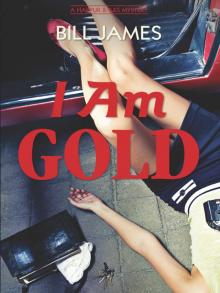 I Am Gold
I Am Gold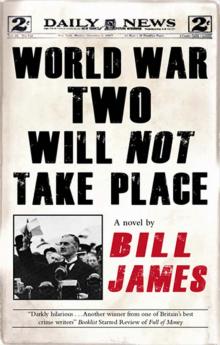 World War Two Will Not Take Place
World War Two Will Not Take Place Pix (Volume Book 24) (Harpur & Iles Mysteries)
Pix (Volume Book 24) (Harpur & Iles Mysteries)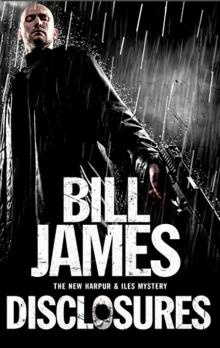 Disclosures
Disclosures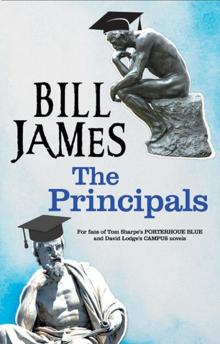 The Principals
The Principals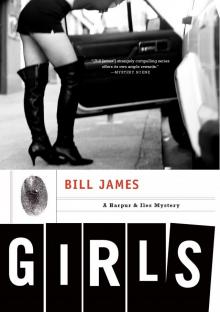 Girls
Girls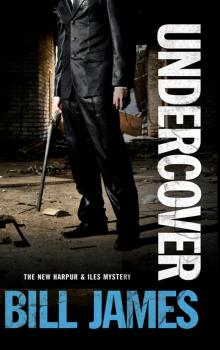 Undercover
Undercover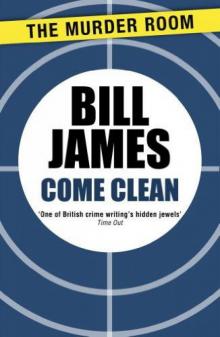 Come Clean (1989)
Come Clean (1989)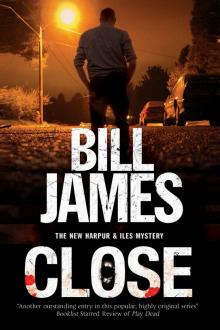 Close
Close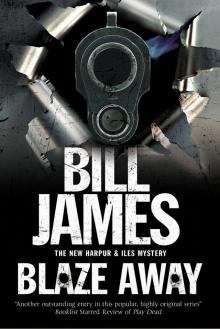 Blaze Away
Blaze Away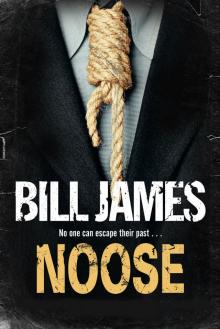 Noose
Noose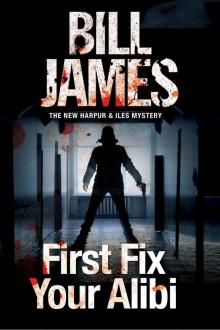 First Fix Your Alibi
First Fix Your Alibi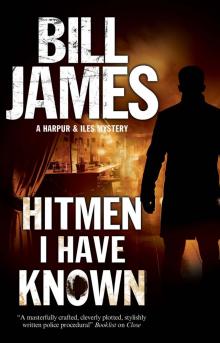 Hitmen I Have Known
Hitmen I Have Known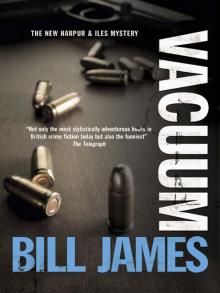 Vacuum
Vacuum Play Dead
Play Dead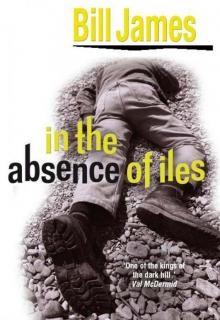 In the Absence of Iles
In the Absence of Iles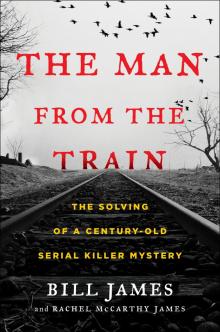 The Man from the Train
The Man from the Train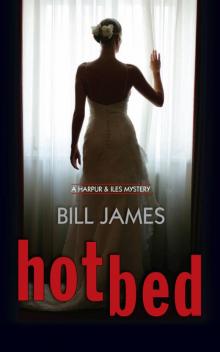 Hotbed
Hotbed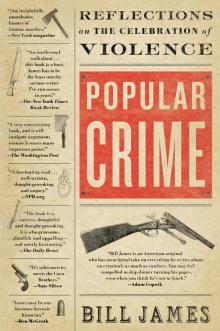 Popular Crime
Popular Crime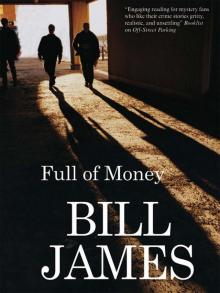 Full of Money
Full of Money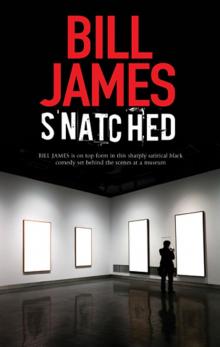 Snatched
Snatched